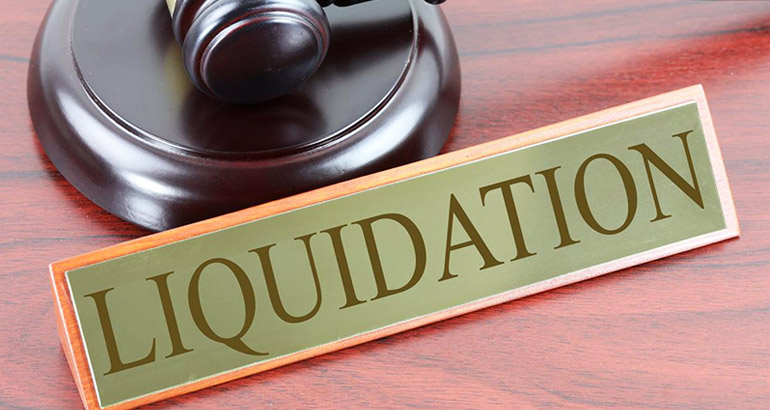Company Liquidation Things To Know Before You Get This
Table of ContentsWhat Does Company Liquidation Mean?The 10-Minute Rule for Company Liquidation3 Simple Techniques For Company LiquidationCompany Liquidation for BeginnersThe Best Guide To Company Liquidation
These funds are asserted from the Redundancy Settlements Solution, who will subsequently send claims into the liquidator. This connects to an amount that is set apart from the company's web residential properties. This guarantees that unprotected lenders have a much better chance of recouping several of the financial debt that they schedule.Drifting fee properties can be sold and traded during typical organization procedures. The amount extra as soon as prescribed part financial institutions have been handled is used to settle any type of drifting cost creditors. Distributors Consumers Contractors Team Claims Profession Creditors HM Profits and Customs By rapidly reclaiming control, we can assist you address the issues that your service has.
It avoids the financial institutions of the company from sustaining more financial debt and ensures you, as a supervisor, are much less likely to be guilty of wrongful trading activity being brought versus you. Company Liquidation. Several of the primary benefits of Liquidation are: Removes stress from all financial institutions. Stops additional legal action being taken against you
Supplies a full, clean break for directors to relocate on from the company. As liquidator's costs are paid once business possessions are realised (giving properties are of adequate worth), there are no various other costs directors are accountable for.
The 5-Minute Rule for Company Liquidation
Once liquidation starts, any type of trading that is proceeded with business might create you to be prosecuted. Business possessions, reputation and licenses will certainly be immediately eliminated from business possession. Can't recoup any type of tax loss you might have sustained in your trading years. If you are taking into consideration selling off a business and starting again, there are a number of problems and intricacies that you should think about.
It is not unusual for a company to go right into liquidation and close, yet for a new lawful entity to after that be created where the properties of the liquidated business proceed. In these instances, the properties may be obtained from the Liquidator at reasonable value. It is constantly worth thinking about all of your available choices when looking at liquidating your business and beginning again.
In these circumstances, the supervisors of the business are shielded from the personal responsibilities of the firm debts as the bankruptcy procedure starts. A limited responsibility structure secures those supervisors who have not straight from the source stopped working in their responsibilities and obligations, such as where the company has battled due to unforeseen scenarios and external aspects that the directors had no control over.
Over a period of 5 years post-liquidation, supervisors are unable to: End up being a supervisor of a firm trading under a similar profession and name. Company Liquidation. Form, promote or manage a firm under an in a similar way registered name or trading name. Anybody located to have actually breached these constraints will be fined or, in the most major cases, be offered a jail sentence
The Basic Principles Of Company Liquidation
Court Allocation- You can make an application to the courts to use a registered or trading name that resembles the preliminary business. Existing Call- In many cases, a company might have been trading under a 'banned' name in the 12-months to the build-up to the liquidation procedure beginning.

In terms of Compulsory Liquidation, the Courts must be included in the ending up of a business. If you own a company and desire to learn more information on just how to liquidate a business reviewed our blog site below. Exactly how to Liquidate a Company Yourself Blog site Below at The Bankruptcy Specialists, we have aided a range of clients around the UK to complete their firm liquidation in the way which finest see this website protected their monetary passions.

The sees a firm wound up, folded and struck from the Companies Residence register. Liquidation typically takes place when a business can no more pay its financial obligations, causing company possessions being sold in order to pay lenders. The can be voluntary or it can be court-ordered, with the end game in either case being to 'liquidate' the company.
Company Liquidation Can Be Fun For Anyone
The length of time the takes can vary from one firm to the next. It depends on the kind of liquidation taking place and the size of the company being liquidated.
A challenging that includes a huge business and multiple creditors can take 6 to 12 months to finish. A compulsory liquidation is necessarily mosting likely to last much longer than a volunteer liquidation, as official source resistance is going to be fulfilled. Ultimately, the even more cooperation there is in between all parties included, the smoother and quicker the will certainly be.
Yet what's the initial step in the? And just how does a company get to the factor where liquidation is the very best option for it? Any kind of generally starts with the company directors recognising that business is in economic problem, or expressing a desire to close the business down. Revenues might be down, sales going stale or creditors may be harassing the accountants to be paid.
The 3-Minute Rule for Company Liquidation
When a firm becomes bankrupt and is no much longer able to pay its debts, then liquidation is often the last resort. This can be the result of negative organization decisions, a poor financial environment or events outside of the firm's control. As we'll discuss, directors can likewise sell off a business before it becomes bankrupt.